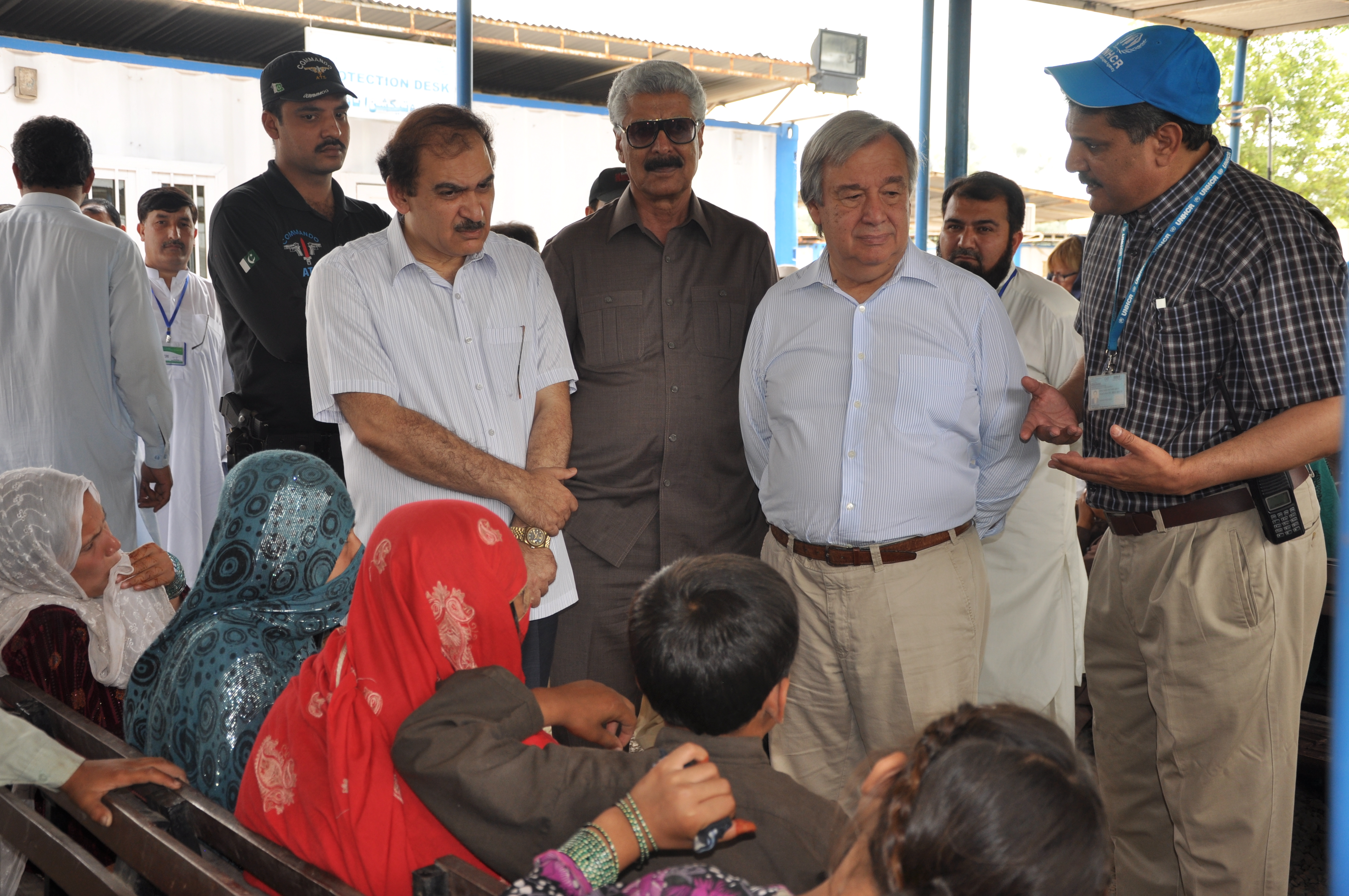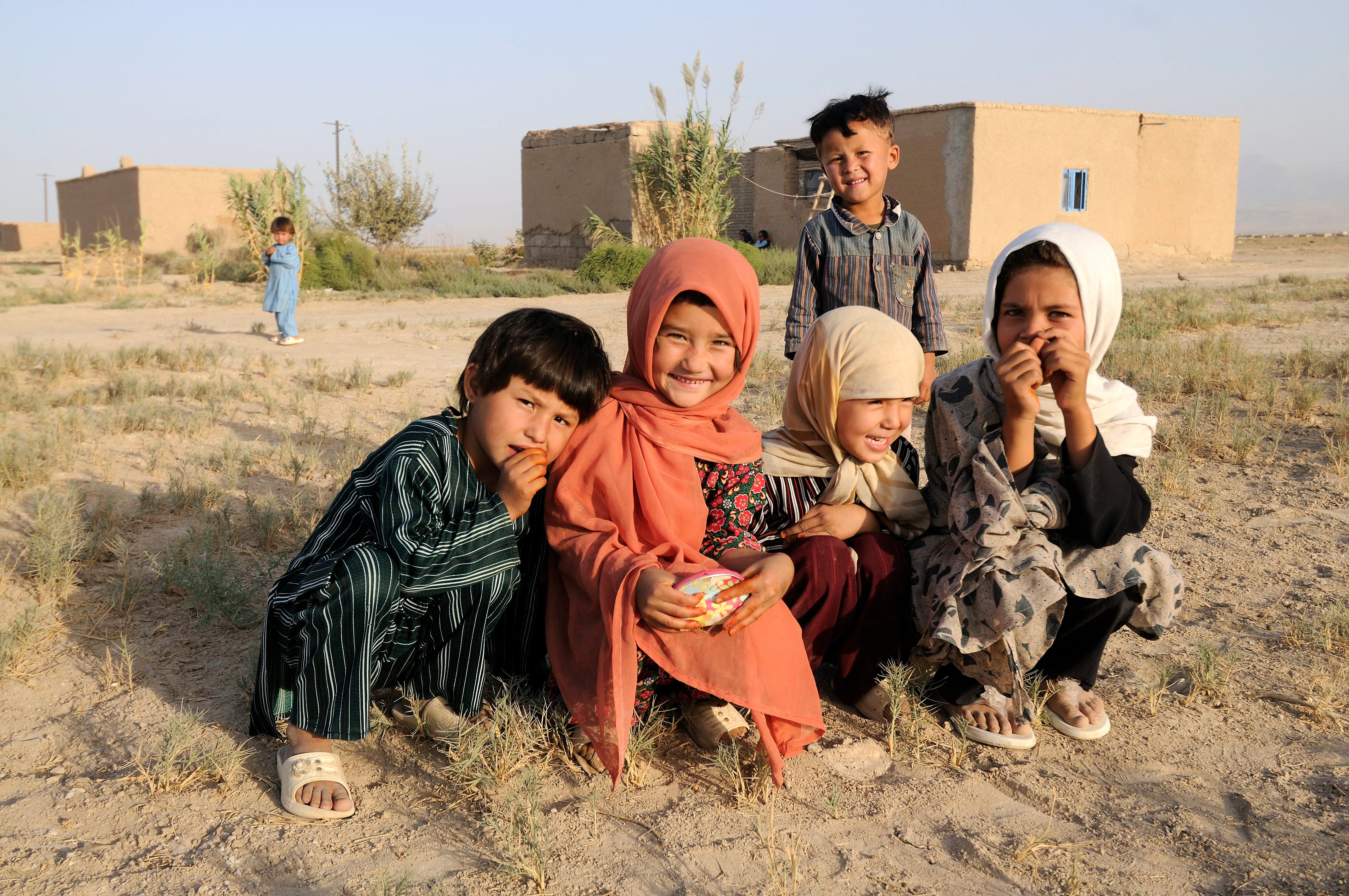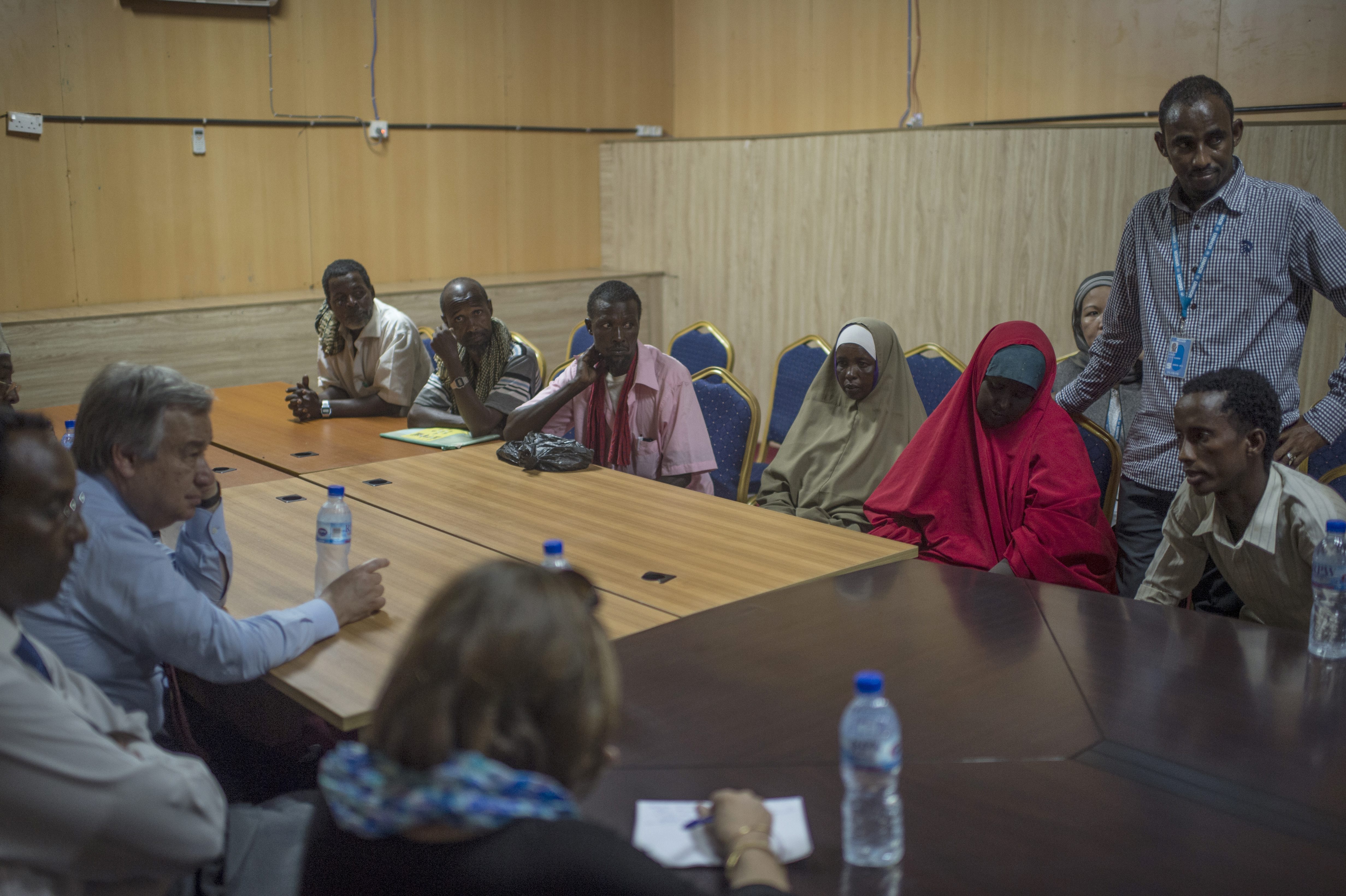With emergency operations across Africa, UNHCR faces great pressure
With emergency operations across Africa, UNHCR faces great pressure

GENEVA, April 5 (UNHCR) - With three major emergency operations across Africa, UN High Commissioner for Refugees António Guterres said Tuesday his agency had never been under such pressure since he took the helm in 2005.
Guterres, addressing journalists in Geneva after returning from Kenya, also paid tribute to UN colleagues who have been "victimized" in recent days, including seven people killed by mob violence in Afghanistan, the dead from an air crash in Democratic Republic of the Congo and UNHCR staff trapped by fighting in the agency's office in the Côte d'Ivoire city of Abidjan.
The High Commmissioner said his trip to Kenya, and the sprawling Dadaab refugee complex in the north-east, was the last in a series of missions over the past month aimed at evaluating the three most serious displacement crises facing UNHCR - Côte d'Ivoire, Libya and Somalia.
He said UNHCR had emergency teams in Tunisia and Egypt, with another ready to go into Libya once authorization was given from UN headquarters in New York. The agency also has emergency teams in Liberia and Ghana and emergency staff ready to go to Côte d'Ivoire, while the Burkina Faso operation is being strengthened. UNHCR's presence in Dadaab is also being enhanced.
"All this represents an enormous pressure on us all and we count on the solidarity of the international community," Guterres said, adding that this meant not only financial support with UNHCR and other aid organizations but also solidarity with the displaced and people of host countries. "I don't think I ever had a moment in which we were under so much pressure," he reiterated.
But the High Commissioner also said his missions had heartened him because "they show that in today's world there are still a number of very generous countries who go on keeping their borders open for massive inflows of people in need of protection." He singled out Egypt, Tunisia and Liberia.
Guterres said Liberia was hosting more than 120,000 refugees from Côte d'Ivoire - some of whom he met during a visit to eastern Liberia on March 22 - and smaller numbers had found shelter in other countries. Up to 1 million Ivorians were displaced inside their country and in desperate need of help.
But the High Commissioner said that because of the dire security situation, "It has been very difficult to deliver any kind of assistance to the people we all care for." In the commercial capital of Abidjan, six UNHCR international staff and one national staff member have been trapped in the agency's office along with more than 300 Liberian refugees as fighting swirls around the complex.
Two of the refugees, including a young girl, have been injured by stray bullets, Guterres said, adding that he hoped they could all be evacuated to safety by international peace-keepers later Tuesday or on Wednesday.
The High Commissioner, who lauded the staff in Abidjan for their courage and "their devotion to the refugees," said UNHCR had two major concerns for Côte d'Ivoire. First, he was worried that the fighting between forces loyal to presidential rivals Laurent Gbagbo and Alassane Ouattara had created new ethnic tensions that could outlast the conflict.
Secondly, he feared that the problems in Côte d'Ivoire could spill over into Liberia, which is rebuilding after years of civil war from 1989-2003. "It is absolutely essential to support Liberia in order to avoid any kind of destabilization that the situation in Côte d'Ivoire might have on the . . . Liberian process of peace-building," Guterres stressed.
On Libya, he said that he had visited both Tunisia and Egypt, the main receiving nations. Since the crisis erupted in mid-February, Guterres noted, some 439,000 people have fled Libya, including about 217,000 to Tunisian and more than 170,000 to Egypt.
The High Commissioner said his greatest concerns were for Libyans inside Libya who were in desperate need of humanitarian aid and for some 3,000 people (mainly Somalis and Eritreans) stuck at the Tunisia-Libya and Egypt-Libya borders because they cannot return to their home countries.
"They can be considered as double refugees," Guterres said while calling on resettlement countries to support UNHCR's "solidarity global resettlement programme in order to find a new home for these people."
He also appealed for humanitarian access to be allowed for Libya. He said UNHCR had taken part in an assessment mission in eastern Libya this week and had a team ready to deploy. "We are very much committed to enter Libya in an effective way with other UN agencies."
Finally, on Somalia, Guterres noted that "the fighting is generating one of the highest levels of displacement in recent times," with some 10,000 people a month fleeing to Kenya, compared to 5,000 a month last year. He said Dadaab's three camps now held about 330,000 people, making it Kenya's fourth largest city. In addition to 700,000 refugees, there are also an estimated 1.5 million internally displaced Somalis.
Another concern, he said, was that Somalis are being discriminated against and stigmatized in many countries. "I hope all countries of the world will keep their borders open to Somalis in need of protection and will do their best to avoid these forms of discrimination that punish Somalis twice."






